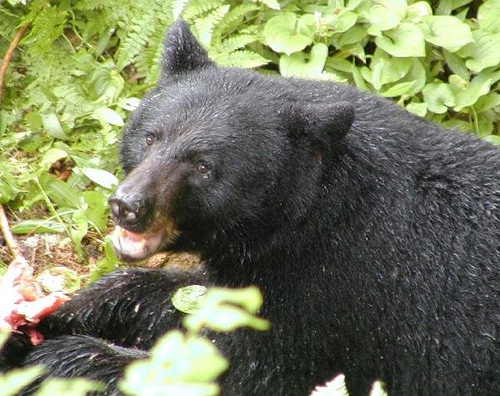
Bear markets are not fun. Typically, one of these beasts is defined as a decline of 20% or more. While hard-wired positive thinkers and cold-blooded businessmen view them purely as buying opportunities, for most investors they are worrying and destabilising affairs where carefully constructed buying theses seem to count for nought and babies are thrown out with bath water from any number of windows.
There is usually more anxiety during a bear market than there was enjoyment of its preceding bull market. The reason for this, I think, is that people tend to come to the party late in the day and those who have been there for most of the night drink more heavily as it goes on; in other words, people buy at the top. But, after you experience your first, they never seem quite so scary again. I didn’t make it through the Dot Com shenanigans with my investment account still open but, the positive side of this, was that it stood me in good stead for the 2008/9 Financial Chaos when I was less naïve.
Fortunately, because financial history has been busily accumulating for some years now, we have a decent idea of roughly what to expect from one of these unwelcome down markets:
- Bear markets occur about once every 3.5 years.
- They last, on average, between 6 and 18 months.
- The average bear market loss in the US is -35%.
- Scale of losses is determined by the degree of starting overvaluation with heavier losses resulting from excessive beginning valuations.
- In the year after the three most recent calendar year falls of > 20%, the market has risen by an average +32%. Note to self: Never suffer an attack-of-the-zeros (what if it all goes to zero?) and sell!
- Everything goes down: quality, cyclicals, staples, and financials. Buffett has said that he has seen the value of Berkshire halve four times in his lifetime.
- At the point you think a bear market is finished, it usually gets worse. This is what the professionals refer to as revulsion and is the moment at which the perfect market timer, who doesn’t actually exist, would be buying everything in sight.
- Typically, it takes 3.3 years for shares to regain their nominal high of before the bear market began.
Media commentary by usually calm and rational pundits tends to become hysterical and alarmist during bear markets. “Billions wiped off stock market” is the most common headline and is often accompanied by a photo of a stripe-shirted spiv with a phone clamped to his ear gesturing wildly (this is the BBC’s favoured approach). Meanwhile, professionals begin talking smugly about weak hands getting shaken out and short sellers calling the shots, and so on. Growth funds become loathed and suffer huge redemptions while the Personal Assets Trusts and Ruffers of this world become temporarily revered. Doom mongers play well everywhere and whoever most recently happened to warn that markets were overvalued is accorded sage status.
But bear markets are also where the most successful purchases are made. In the last one, you could have purchased BT at 97p (it is now about 400p), Glaxo at about 1000p (now 1600p), or British American Tobacco at about 1700p (now 3600p). Dividend yields available move to no-brainer territory and the chances of you buying something at the wrong price diminish markedly, because there are fewer wrong prices. Jeremy Siegel provides another of his useful nuggets when he informs us that:
The word crisis in Chinese is composed of two characters: the first, the symbol of danger… the second, of opportunity.
Why am I thinking about all of this now? Well, it has been about five years since the last one (who could ever forget it) and forewarned is forearmed, as every ex-boy scout knows.
References:
- Bear Markets – and their subsequent recoveries
- BTN Research (via article above)
- History of U.S Bear & Bull Markets Since 1929
- Stocks for the Long Run, Jeremy Siegel
Disclosure: Long BT., GSK, BATS.
Disclaimer: This post is not a recommendation to either buy or sell. Please consult your investment advisor.

I think it’s the first law of investing which says markets go up and then go down! As you say, not much fun when falling but good for bargain hunters…and we all like a bargain.
For me, its down to a question of belief. No matter how far the markets fall, and then fall some more – you have to believe they will ALWAYS bounce back. The bear necessities maybe?
Hur hur hur! Should talk about bull markets instead – couldn’t bear any more puns.